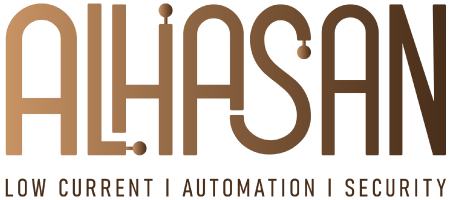Address
Wecare Business Center, Opposite Etisalat Head Office, Al Musalla, Sharjah,
United Arab Emirates
Work Hours
Saturday - Thursday
08:00 - 17:00
Introduction
The United Arab Emirates (UAE) is known for its remarkable skyline, luxurious lifestyle, and innovation. However, in recent years, it has also emerged as a leader in sustainable energy practices. Solar energy, in particular, has taken center stage in the UAE’s efforts to diversify its energy sources and reduce reliance on fossil fuels. With abundant sunlight and a commitment to a greener future, the UAE presents a compelling case for solar energy installations.
The UAE’s Solar Energy Revolution
The UAE’s ambitious vision for sustainability is evident through initiatives like the UAE Energy Strategy 2050, which aims to increase the contribution of clean energy to the national energy mix to 50% by 2050. Solar energy plays a pivotal role in this strategy, driven by projects like the Mohammed bin Rashid Al Maktoum Solar Park in Dubai, one of the largest solar parks globally.
The government has implemented policies and incentives encouraging businesses and homeowners to invest in solar energy installations. From net metering systems that allow excess energy to be fed back into the grid to reduced tariffs on solar equipment, the UAE is creating an environment conducive to solar adoption.
Why Solar Energy is Ideal for the UAE
1. Abundant Sunshine
The UAE enjoys an average of 10-12 hours of sunlight daily, making it an ideal location for harnessing solar energy. This consistency ensures high energy yields throughout the year, making solar panels a reliable energy source.
2. Environmental Benefits
As a nation committed to reducing its carbon footprint, solar energy offers a cleaner, greener alternative. By replacing traditional energy sources with solar, the UAE can significantly lower greenhouse gas emissions, contributing to global climate change mitigation efforts.
3. Economic Savings
Solar installations may require a substantial upfront investment, but the long-term savings are undeniable. Businesses and households can drastically reduce electricity bills while contributing excess power to the grid, creating potential income streams.
Types of Solar Installations in the UAE
1. Residential Solar Systems
Many UAE homeowners are embracing solar panels to reduce utility bills and increase property value. Rooftop solar panels are particularly popular, as they utilize unused roof space effectively.
2. Commercial Solar Systems
Businesses are leveraging solar energy to reduce operational costs and showcase their commitment to sustainability. From shopping malls to manufacturing plants, solar energy is revolutionizing commercial energy consumption.
3. Utility-Scale Projects
Mega solar parks like the Noor Abu Dhabi Solar Plant highlight the UAE’s commitment to renewable energy. These large-scale installations not only cater to local energy demands but also position the UAE as a leader in solar technology.
Key Considerations for Solar Installation
1. Cost of Installation
Solar installation costs depend on factors like system size, type of panels, and installation complexity. However, the UAE government’s incentives and falling solar technology costs have made installations more accessible than ever.
2. Regulatory Compliance
Before installation, it’s crucial to understand the regulations and permits required. The UAE mandates compliance with standards set by local authorities, such as the Dubai Electricity and Water Authority (DEWA) or the Abu Dhabi Distribution Company (ADDC).
3. Maintenance Needs
Solar panels require minimal maintenance but need regular cleaning to ensure optimal efficiency, especially in the UAE’s dusty environment. Partnering with reliable service providers can make this task hassle-free.
Challenges and Solutions
While the potential for solar energy in the UAE is immense, challenges like high initial costs, regulatory hurdles, and public awareness still exist. To address these:
- Subsidies and Loans: Government-backed financing options can make installations more affordable.
- Awareness Campaigns: Educating the public about the benefits of solar energy can boost adoption rates.
- Technological Advancements: Innovations like solar battery storage systems can make solar installations more efficient and cost-effective.
The Future of Solar Energy in the UAE
The UAE’s commitment to solar energy goes beyond installations. The country is investing in research and development to innovate solar technologies. Projects like floating solar farms and solar desalination plants are on the horizon, promising exciting developments in renewable energy.
The UAE’s leadership in hosting global events like the COP28 climate conference underscores its role in shaping a sustainable future. With continued investment and public participation, solar energy will not only transform the UAE’s energy landscape but also set an example for the world.
Conclusion
Solar energy installation in the UAE is more than just a trend; it’s a step toward a sustainable and prosperous future. With its abundant sunlight, strong governmental support, and innovative projects, the UAE is poised to lead the global shift toward renewable energy.
Whether you’re a homeowner looking to save on electricity or a business aiming to go green, solar energy is the key to unlocking long-term benefits. By investing in solar installations today, you’re not just reducing costs—you’re contributing to a cleaner, brighter tomorrow.

